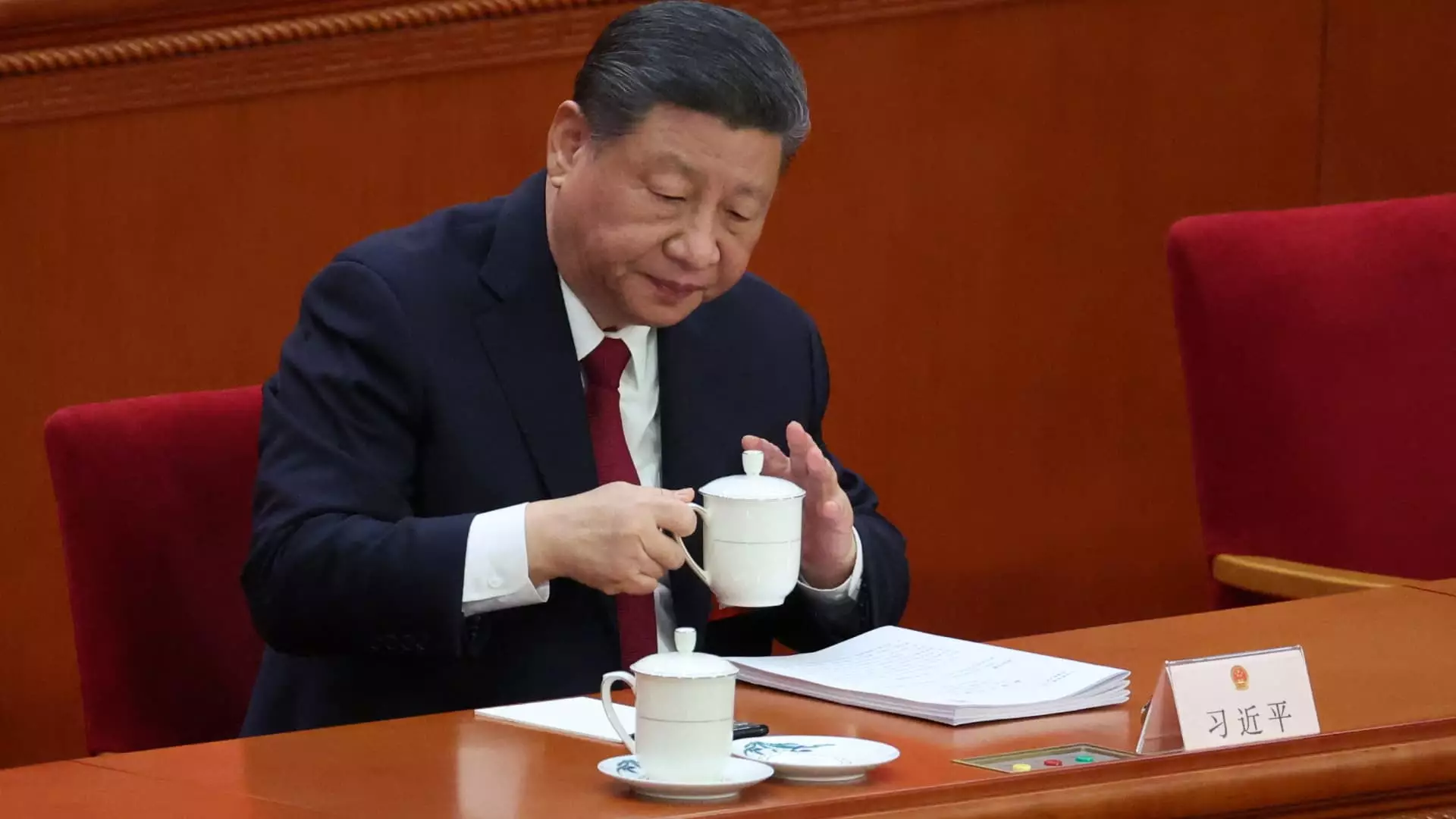As China confronts an increasing barrage of external shocks, the urgency for effective and bold economic reforms has never been so pronounced. With recent trade tensions escalating between Beijing and Washington, the implications for China’s economy are stark. The financial forecasts from major Wall Street banks, already pessimistic about China’s growth trajectory for the year, send a clear signal: immediate, decisive action is required. The once-impressive target of achieving around 5% GDP growth now hangs in the balance, demanding robust strategies that go beyond mere rhetoric.
Relations with the United States have soured; the relentless cycle of tit-for-tat tariffs, which exceed 100%, signals a war that threatens to inflict lasting damage on the business community in China. Supporting struggling enterprises is no longer optional; it’s an existential necessity that requires innovative policy creation. It’s time for policymakers to pivot from reactive measures to proactive engagements that equip businesses to navigate these treacherous waters.
Emergency Measures: More than Just Financial Band-Aids
In recent statements from the Politburo, there’s an evident reliance on traditional financial support mechanisms—like targeted interest rate reductions and tailored fiscal policies. However, such measures alone may not suffice to counteract the growing list of challenges. Consider the recent escalation in tariffs; this is a wake-up call not just for economists or policymakers but for the entire Chinese market. Simple fiscal maneuvers are inadequate in the face of complex, evolving external pressures.
Instead, what China truly needs are bold, structural reforms focused on enhancing domestic consumption and thereby reducing its dependency on foreign markets. By promoting innovation and encouraging home-grown industries, the gradual shift towards a less export-reliant economy could herald a new era of resilience and self-sufficiency. Policies should target support not only for large corporations but also for the backbone of the economy—small to medium-sized enterprises.
A Comprehensive Strategy for Growth and Stability
To effectively tackle the myriad of challenges posed by external shocks, the Chinese government must enact a multi-faceted strategy that integrates various sectors of the economy. Encouraging innovation in technology seems to be a cornerstone of current discourse, but it’s essential to expand this emphasis into comprehensive support for R&D across all industries. Artificial intelligence may have the potential to disrupt many sectors, yet without substantial investment in its infrastructure, merely aspiring to “integrate” it remains hollow.
Furthermore, policies should prioritize boosting the incomes of middle and lower-income groups, which will in turn foster stronger domestic consumption. A vibrant consumer market could act as a powerful buffer against the winds of global trade disputes. By creating an environment where citizens feel financially empowered, China could stave off economic vulnerability from fluctuating international relations.
A Call to Converge Public and Private Sector Efforts
The latest statements from China’s leadership emphasize collaboration between the state and private sectors, yet translating these broad policy directives into tangible actions remains the challenge. Economic revitalization cannot solely be the government’s responsibility; it’s crucial for the private sector to play a significant role in this transformation. Laws that support private businesses, expected to be reviewed in upcoming National People’s Congress meetings, should not be mere formalities but rather a springboard for innovation and flexible market responses.
Private enterprises possess the agility needed to pivot during these turbulent times. Fostering a conducive atmosphere for entrepreneurial ventures could result in innovative solutions that waylay the adverse effects of international trade conflicts. A road map is necessary—a defined partnership between public policies and private capabilities to create a more dynamic, resilient economy.
Navigating Towards Economic Sovereignty
The crux of the matter lies in the ability of China’s leadership to confront external pressures head-on, unraveling the complexities of the current economic landscape. True resilience will emerge from the willingness to reform archaic systems and methodologies, placing emphasis on progressive strategies rooted in domestic empowerment. It’s not merely about surviving the storm; it’s about emerging stronger from it, with an economy that thrives on diversity, innovation, and inclusivity. The time for half-measures has passed; China must embrace bold moves to assure its economic sovereignty in an increasingly complex global context.

